Dataset is attached. In the column named as "transcription", I want to extract Uppercase word from a string from each and every row in a column and make it as a feature of a dataframe and the string following the uppercase word to be the value of that data point under that feature .
Expected output would be another column in the dataframe named as uppercase word found in a string and the particular data point would have a value under the feature. Tried my best to explain.
Link of sample output Sample output (Shown for first 2 data points)



